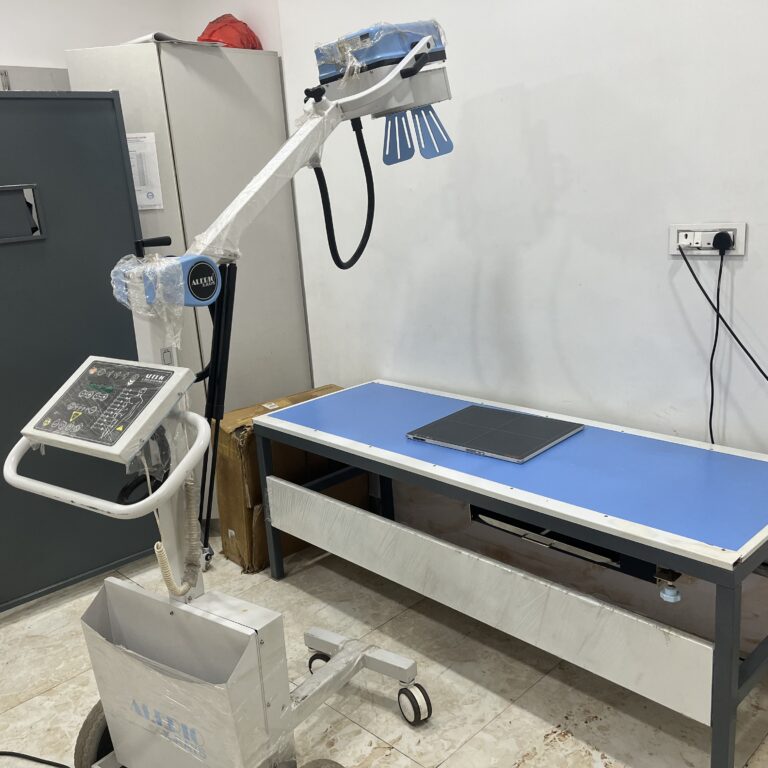Obesity Treatment in Bangalore
- Minimal Pain | No Stitches
- All Insurance Accepted
- No-Cost EMI

Book an Appointment .sticky-column{ position: sticky; position: -webkit-sticky; top: 3rem; }
Obesity
- Obesity is a complex disease involving an excessive amount of body fat. Obesity isn't just a cosmetic concern. It's a medical problem that increases the risk of other diseases and health problems, such as heart disease, diabetes, high blood pressure and certain cancers.
- There are many reasons why some people have difficulty losing weight. Usually, obesity results from inherited, physiological and environmental factors, combined with diet, physical activity and exercise choices.
- The good news is that even modest weight loss can improve or prevent the health problems associated with obesity. A healthier diet, increased physical activity and behavior changes can help you lose weight. Prescription medications and weight-loss procedures are additional options for treating obesity.
Asians with BMI of 23 or higher may have an increased risk of health problems.
For most people, BMI provides a reasonable estimate of body fat.
However, BMI doesn’t directly measure body fat, so some people, such as muscular athletes, may have a BMI in the obesity category even though they don’t have excess body fat.
Many doctors also measure a person’s waist circumference to help guide treatment decisions. Weight-related health problems are more common in men with a waist circumference over 40 inches (102 centimeters) and in women with a waist measurement over 35 inches (89 centimeters)

Lifestyle choices
- Unhealthy diet : A diet that's high in calories, lacking in fruits and vegetables, full of fast food, and laden with high-calorie beverages and oversized portions contributes to weight gain.
- Liquid calories : People can drink many calories without feeling full, especially calories from alcohol. Other high-calorie beverages, such as sugared soft drinks, can contribute to significant weight gain.
- Inactivity : If you have a sedentary lifestyle, you can easily take in more calories every day than you burn through exercise and routine daily activities. Looking at computer, tablet and phone screens is a sedentary activity. The number of hours spent in front of a screen is highly associated with weight gain.

Causes
- Although there are genetic, behavioral, metabolic and hormonal influences on body weight, obesity occurs when you take in more calories than you burn through normal daily activities and exercise. Your body stores these excess calories as fat.
- In the United States, most people's diets are too high in calories — often from fast food and high-calorie beverages. People with obesity might eat more calories before feeling full, feel hungry sooner, or eat more due to stress or anxiety.
- Many people who live in Western countries now have jobs that are much less physically demanding, so they don't tend to burn as many calories at work. Even daily activities use fewer calories, courtesy of conveniences such as remote controls, escalators, online shopping and drive-through banks.

Certain diseases and medications
- In some people, obesity can be traced to a medical cause, such as Prader-Willi syndrome, Cushing syndrome and other conditions. Medical problems, such as arthritis, also can lead to decreased activity, which may result in weight gain.
- Some medications can lead to weight gain if you don't compensate through diet or activity. These medications include some antidepressants, anti-seizure medications, diabetes medications, antipsychotic medications, steroids and beta blockers.
Other factors:
- Pregnancy: Weight gain is common during pregnancy. Some women find this weight difficult to lose after the baby is born. This weight gain may contribute to the development of obesity in women.
- Quitting smoking: Quitting smoking is often associated with weight gain. And for some, it can lead to enough weight gain to qualify as obesity. Often, this happens as people use food to cope with smoking withdrawal. In the long run, however, quitting smoking is still a greater benefit to your health than is continuing to smoke. Your doctor can help you prevent weight gain after quitting smoking.
- Lack of sleep: Not getting enough sleep or getting too much sleep can cause changes in hormones that increase appetite. You may also crave foods high in calories and carbohydrates, which can contribute to weight gain.
- Stress: Many external factors that affect mood and well-being may contribute to obesity. People often seek more high-calorie food when experiencing stressful situations.
- Microbiome: Your gut bacteria are affected by what you eat and may contribute to weight gain or difficulty losing weight.
Complications
People with obesity are more likely to develop a number of potentially serious health problems, including:
- Heart disease and strokes : Obesity makes you more likely to have high blood pressure and abnormal cholesterol levels, which are risk factors for heart disease and strokes.
- Type 2 diabetes : Obesity can affect the way the body uses insulin to control blood sugar levels. This raises the risk of insulin resistance and diabetes.
- Certain cancers: Obesity may increase the risk of cancer of the uterus, cervix, endometrium, ovary, breast, colon, rectum, esophagus, liver, gallbladder, pancreas, kidney and prostate.
- Digestive problems: Obesity increases the likelihood of developing heartburn, gallbladder disease and liver problems.
- Osteoarthritis : Obesity increases the stress placed on weight-bearing joints, in addition to promoting inflammation within the body. These factors may lead to complications such as osteoarthritis.
- Severe COVID-19 symptoms: Obesity increases the risk of developing severe symptoms if you become infected with the virus that causes coronavirus disease 2019 (COVID-19). People who have severe cases of COVID-19 may require treatment in intensive care units or even mechanical assistance to breathe.
